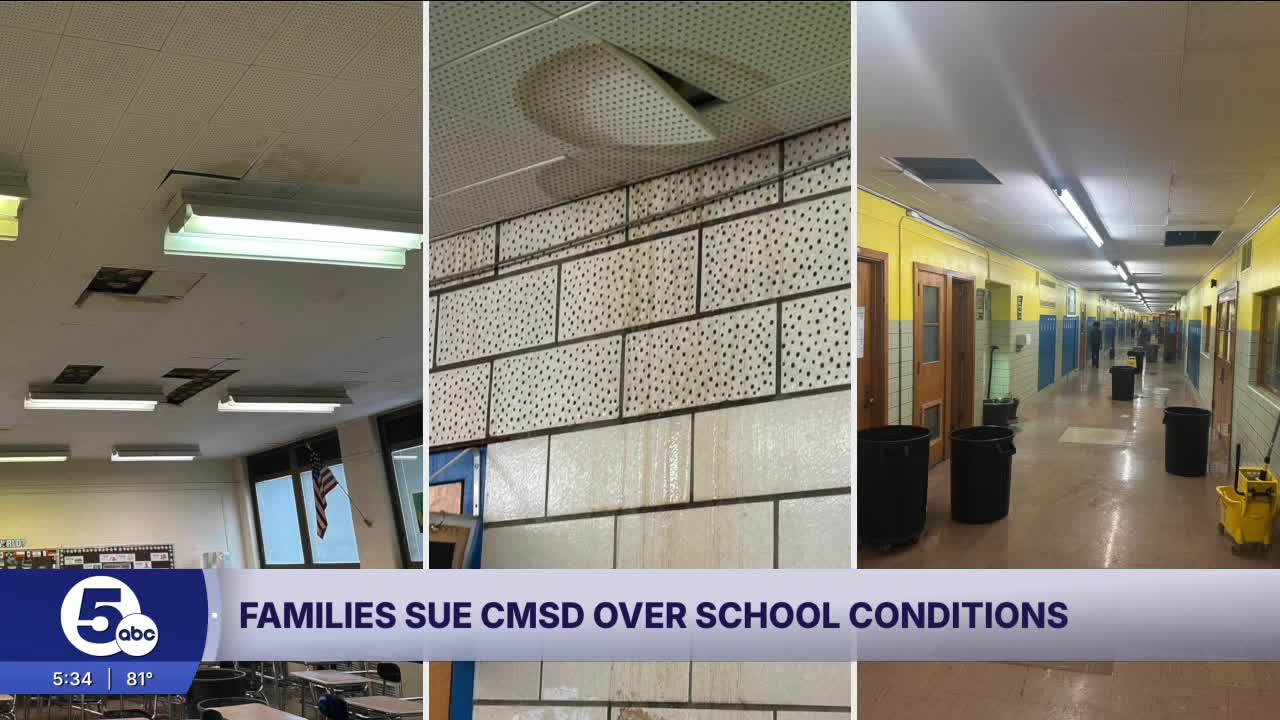CLEVELAND — Five families have filed a civil lawsuit against the Cleveland Metropolitan School District, claiming dangerous conditions inside Newton D. Baker School of Arts made their children, staff, and teachers sick and that concerns were ignored for years.
Lawsuit Details
The lawsuit accuses the district of failing to appropriately investigate and treat mold growth that it claims the district “knew or should have known would be a natural consequence of water intrusion.”
The document claims Newton D. Baker, since at least the spring of 2020, “suffered from a leaky roof, poor building maintenance, and poor remediation of water, moisture and mold,” and that air testing and remediation by an environmental consulting company the district hired didn’t happen until late
March of 2025.
The lawsuit, which claims negligence, nuisance, fraud and intentional misrepresentation, and negligent infliction of emotional distress, says since at least 2023, “the untreated mold infestation caused the Plaintiffs and other teachers, staff, and students of NDB to suffer physical harm, including headaches, flu and cold-like symptoms, and sinus infections.”
CMSD responds to lawsuit
CMSD told News 5 it’s in receipt of the legal document and has forwarded it to legal counsel for review. The district said it will respond to it at an appropriate time.
District considers school closure
I first started reporting on Newton D. Baker’s condition in March, when news broke that the district was recommending its closure because of “ongoing facility challenges,” including a leaky roof the district said had gotten progressively worse.
I also covered a rally where students, parents and educators voiced concerns about plans to close the school and urged district leaders to fix problems and keep the school open.
Air quality testing, remediation
In April, I reported on air quality tests being conducted at the school. At that time, the teachers' union provided numerous photos showing large bins in hallways catching water, stained ceiling tiles, and areas of suspected mold.
On April 10, I reported that test results had come back from GETCO Environmental Consultants. A letter sent to staff and families stated that air samples taken after cleaning and remediation “show that airborne fungal levels inside the building are now similar to or lower than outdoor levels, which aligns with environmental health guidelines.”
The letter added, “Importantly, no airborne Stachybotrys/Memnoniella (commonly known as 'black mold') was detected in the most recent testing. Based on these results, GETCO has recommended no further action related to indoor air quality at this time. Surface swab sample results are still pending, and we will communicate those findings once they are available.”
However, a report from GETCO Environmental Consultants said air tests conducted on March 25, before cleaning began, showed an elevated presence of black mold in the cafeteria and a second-floor classroom. The report states that follow-up sampling on April 7 indicated that fungal counts were “none detect to low."
The report added, “Based on the results of this investigation to date (not including swab sample results, which are pending), GETCO, Inc. recommends no further action in relation to the air quality results as of April 7, 2023, and pending the receipt of the swab surface sample analytical results. If the analytical results from the swab samples indicate additional work is needed, GETCO will follow up with CMSD as soon as possible.”
The district said it also invited Dr. David Margolius, director of the City of Cleveland’s Department of Public Health, to conduct a walk-through. He confirmed that the district has taken appropriate and thorough actions to mitigate concerns, that the building is safe for continued use, and that he agreed with reopening the cafeteria.
Vote to close the school
On April 15, CMSD’s Board of Education voted to permanently close Newton D. Baker. Members called it a tough decision, but necessary due to worsening conditions from this past winter’s harsh weather.
“Patching is not something one that we believe is a safe environment for scholars and educators to be in for another school year,” said CMSD Superintendent Dr. Warren Morgan.
Morgan said if the district decided to fix the school, that would’ve cost about $30 million, and it would cost $45 million to build a new building, which he said they can’t financially support.
On the last day of classes, May 28, I followed through and spoke to families about their plans for the next school year.





